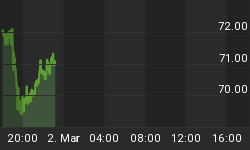After decades of financial scandal and nearly 10 years of reform, the Vatican is taking a big leap toward transparency by joining the European banking system and getting its own IBAN.
Embezzlement and money-laundering have dogged the Vatican for a very long time, even leading to the sensational collapse of an Italian bank, and most recently, the indictment of the former Vatican bank president for losses of nearly $62 million.
The Vatican City State and Holy See won the endorsement last week of the European Council to be included in the Single Euro Payments Area (SEPA), giving the Vatican its own IBAN code identifier to facilitate wire transfers between banks—making things more transparent, and cheaper.
Indeed, the Vatican’s financial scandal report card is a long one. Back in 2015, the Council of Europe demanded that the Vatican start actually prosecuting criminal cases, rather than just freezing assets and calling it day. No one was being held accountable in the end, with the Council of Europe at this time last year citing everything from fraud and serious tax evasion to misappropriation and corruption.
Now, the Vatican will have to play by the financial rules of everyone else in the European Union. That means two things: 1) more transparency for the Vatican, and 2) the EU thinks it’s made some progress cleaning house.
The Vatican’s Institute for Religious Works (IOR) has been the bane of what should have been holy financing, turned very unholy.
No one will soon forget “Monsignor 500”—the former Vatican accountant who was charged in 2013 by Italian authorities with trying to smuggle some $22 million into Italy from Switzerland on a private jet. He wasn’t acting alone, either. According to the charges, he was being aided by an Italian secret service agent and a financial broker. Related: Trade War Truce Sends Markets Soaring
When he was arrested, the Vatican moved to freeze 10 accounts held by the “Monsignor”—Nunzio Scarano—though he claimed at the time that the $2 million in those accounts had come from donations.
But Scarano actually failed to smuggle the $22 million into Italy because there were complications at the starting point, and this fact won him a lighter verdict from a judge in 2016. That year, he received a two-year suspended sentence for lesser crimes, but was still on trial in Salerno for money-laundering.
In February this year, a Vatican court found two former IOR senior managers liable for mismanagement in connection to the Scarano case, and ordered them to compensate the Vatican bank for damages.
With all these scandals behind it now, the new deal for the Vatican bank to join SEPA will take effect at the beginning of the New Year.
In a Friday statement the Vatican’s president of the Financial Information Authority (AIF), René Brülhart, said the move was a “very positive sign” because it means the bank has been found transparent and up to the standards of SEPA.
It also means that the IOR will be considered a “domestic bank” going forward.
“It helps to facilitate payments and harmonize such services,” Brülhart said. “Furthermore, it demonstrates the Holy See’s efforts to enhance financial transparency.”
By Charles Benavidez for Safehaven.com
More Top Reads From Safehaven.com
















